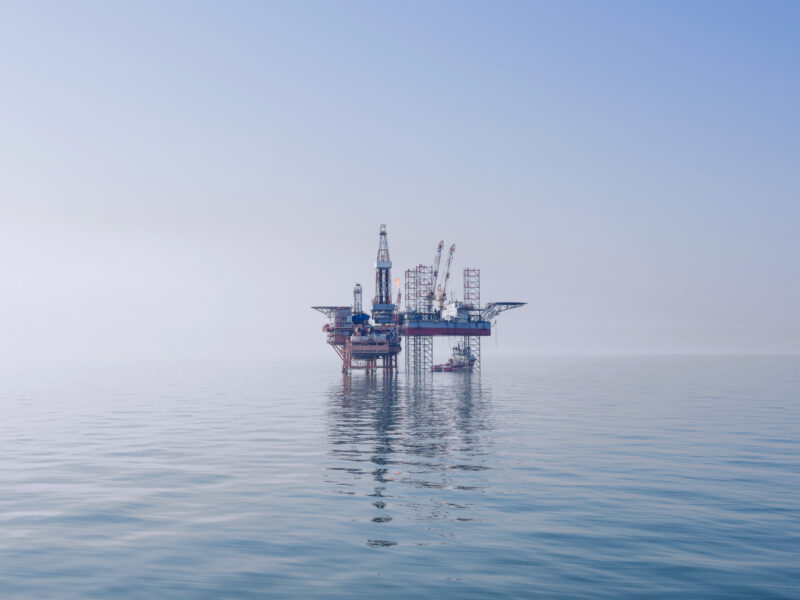How did we overlook billionaire Commerce Secretary Wilbur Ross’s overt financial ties with the Russian oligarchy?
Though Wilbur Ross’s 2014 buyout of the Bank of Cyprus, a tax haven for Russian billionaires, has been documented in the press, it only made headlines in 2017. Spy games may capture our cultural imagination, but dirty money is what greases the machinery.
On February 16, six Democratic senators sent a letter to Wilbur Ross with questions about his Russia ties but the White House sat on his response. Cory Booker was the only senator to keep pushing into last week with follow-up questions. Ross sailed through his confirmation yesterday without answering them. We didn’t follow the money and now it’s in the White House.
In a way, the Bank of Cyprus, where Ross is the primary stakeholder and vice-chairman, symbolizes the failure of Western efforts to diminish Russian financial influence.
Cyprus was a notorious tax haven for Russian businessmen until the European debt crisis in 2013 led the bank to collapse. Russian businessmen lost billions fast. Putin refused to help and Germany was reluctant to bail out the Russian deposits. It wanted to force Russians out of the European bank and so during restructuring, deposits were converted into shares. Ironically, this gave majority ownership of the bank over to Russian plutocrats. As the Cypriot president, Nicos Anastasiades, said in June 2013, “They wanted to throw out the Russians but in the end, they delivered our main bank to the Russians.”
This is where Wilbur Ross comes in. Having already made money during the European debt crisis through a takeover of the Bank of Ireland, Ross led a 1 billion euro takeover of the Cypriot bank during the summer of 2014, including a buyout of most, but not all of the Russian plutocrats. Viktor Vekselberg, one of Russia’s richest men, became the second-largest shareholder in the bank through his Bahama-based conglomerate, Renova Group.
Ross recruited Josef Ackermann, former CEO of Deutsche Bank, Putin associate and a director at Renova Group, to join Bank of Cyprus’s board. Deutsche Bank is Trump’s largest creditor and was recently found guilty of enabling a $10 billion Russian money laundering scheme, funnelling money from Moscow to offshore accounts in Cyprus (!), among other places.
Besides Ackermann, Bank of Cyprus’s board includes Ross as vice-chairman, a position he shared until 2015 with former KGB agent and businessman Vladimir Strzhalkovsky. After Strzhalkovsky’s resignation, Renova Group executive Maksim Goldman stepped up as vice-chairman. These relationships are more than a little bit incestuous.
In his rage against Obama and Clinton over the Panama Papers and Crimean sanctions, Putin could never have planned a revenge fantasy which played out as well as it has for him — it’s too perfect. But Putin did set himself up for success.
Oil men, offshore accounts and corrupt businessmen are Putin’s bread and butter, and now he has Trump, Tillerson and Ross in the White House.
It’s unfortunate considering that the sanctions seemingly limited Russia’s financial bad behavior. In March 2016, just a week before the Panama Paper leaks revealed Putin’s off-shore investments in the Caribbean, Reuters reported on Moscow’s tighter regulation of off-shore business, citing Vekselberg’s choice to bring assets home to Russia as evidence of the Kremlin’s new muscle.
Imagine the field day these thieves will have when sanctions are lifted and secrecy is protected. Of all of the Trump team’s connections to Russia, Ross’s are explicit and well-documented and yet nothing has been done about them.
Trump’s campaign knew about Vekselberg even before he won. As Trump’s own ties to Russia were being questioned in the weeks before the election, his campaign issued a press release accusing the Clinton Foundation of being on Vekselberg’s dole. Trump regularly accuses Clinton of crimes that he has in fact committed.
Additionally, though it predates Ross’s involvement in the Bank of Cyprus, Senator Booker’s follow up letter asks Ross if he has any knowledge about the 2008 purchase of Trump’s Palm Beach home by Dmitry Rybolovlev, another Russian billionaire and investor in the Bank of Cyprus. Good luck getting an official answer now.
America’s obsession with Flynn’s phone calls should not come at the expense of investigation into Ross’s relationship with notorious money launderers. Ross has yet to resign from the Bank of Cyprus. He has said he intends to divest, but talk is especially cheap with the Trump administration. Such overt corruption in the highest echelons of our government is corrosive, and, unlike the rest of the GOPs policies, is sure to trickle down.



